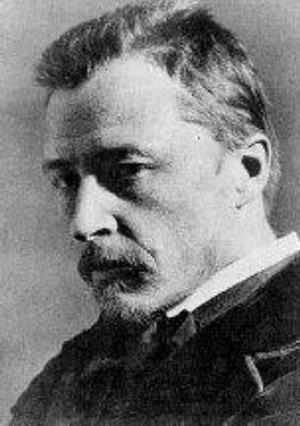Wolf, Verborgenheit
 Hugo Wolf (1860-1903) is known primarily as a late-Romantic composer of German Lieder, a successor to Schubert and Schumann. He drew his texts from numerous sources, including some poets favored by Schubert and Schumann such as Goethe, Heine, and Rückert.
Hugo Wolf (1860-1903) is known primarily as a late-Romantic composer of German Lieder, a successor to Schubert and Schumann. He drew his texts from numerous sources, including some poets favored by Schubert and Schumann such as Goethe, Heine, and Rückert.
He was born in Slovenia into a family of German origin. He learned music from his father, a self-taught musician, and as a child played in the family orchestra with his father, brother, and uncle. He had several unsuccessful attempts at more formal study that were cut short by his headstrong nature. In 1875, he enrolled in the Vienna Conservatory but left after two years in protest of its entrenched conservatism. He suffered throughout his life with periods of depression.
An early fan of opera, he became a strong devotee of Wagner. After meeting Wagner in 1875 and showing him some early works, Wagner encouraged him to put his efforts into large-scale works. A few years later he received the same advice from Brahms, but Wolf, along with many in his generation, dismissed Brahms as a reactionary. In the “War of the Romantics,” Wolf came down solidly on the side of Wagner. He was more receptive to the same advice when it came from Liszt. Despite all this advice, he completed few large-scale works and left instead an enormous body of songs.
Wolf reached his peak of productivity in the years 1888-1889. Verborgenheit is one of 53 songs in a collection of Gedichte von Eduard Mörike (1888). This collection was followed by a collection of similar length based on the poems of Johann von Goethe (1888), 20 on poems of Joseph von Eichendorff (1889), and 34 songs comprising his Spanishes Liederbuch (1891).
Eduard Mörike (1804-1875) was a student of the classics, a Lutheran pastor, and professor of literature. Wolf was perhaps the most prominent composer to set his works extensively, although there were others, and some of Mörike’s works achieved folk-song status.



